During pregnancy, choosing the right foods not only helps the mother maintain her health but also directly affects the development of the fetus. One of the common issues pregnant women face is anemia, especially iron deficiency. Anemia can lead to fatigue, dizziness, and a weakened immune system. However, by supplementing with nutrient-rich fruits, expectant mothers can not only improve anemia but also reduce fatigue, making the pregnancy smoother.
Iron deficiency anemia is a problem that affects about 20-80% of pregnant women. According to the World Health Organization (WHO), the increased demand for iron during pregnancy is the main cause of anemia. This occurs when the amount of blood in the mother’s body increases to supply oxygen to the fetus. Iron plays an essential role in producing hemoglobin, which helps transport oxygen in the body. When iron is deficient, the mother’s body cannot produce enough hemoglobin, leading to low oxygen levels in the blood and symptoms such as fatigue, dizziness, and lightheadedness.
To improve anemia, a simple formula that pregnant women can apply is:
Iron + Vitamin C = Improved iron absorption. Vitamin C helps the body absorb iron better from food. Therefore, combining fruits rich in Vitamin C with iron-rich foods will provide the best results. For example, a pregnant woman can combine strawberries (containing Vitamin C) with spinach (containing iron) to help the body absorb iron from the vegetables more easily.
Fruits rich in vitamins and minerals are an ideal addition to a pregnant woman’s diet. Among them, oranges, tangerines, and grapefruits are excellent choices. These citrus fruits are not only rich in Vitamin C but also help the body absorb iron effectively. Moreover, Vitamin C boosts the mother’s immune system, reducing the risk of infection during pregnancy. Oranges, tangerines, and grapefruits also provide essential nutrients such as folate (folic acid), which is crucial in preventing neural tube defects in the fetus.
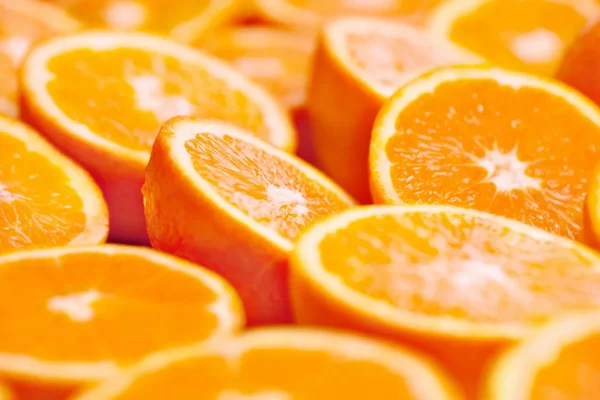
In addition to oranges and tangerines, strawberries are also a great choice. Strawberries are not only rich in Vitamin C but also contain a lot of antioxidants, helping protect the mother’s cells from damage caused by free radicals. Adding strawberries to the diet helps reduce fatigue, a common symptom during pregnancy. Strawberries also provide folate, supporting the development of the fetal nervous system.
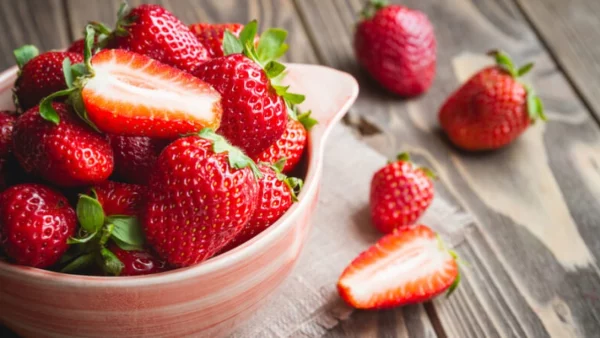
Another fruit that is very beneficial for expectant mothers is bananas. Bananas are an excellent source of potassium and Vitamin B6. Potassium helps regulate blood pressure, while Vitamin B6 helps alleviate nausea, especially during the first trimester. Bananas are also easy to eat and digest, providing energy for the mother without causing stomach discomfort.
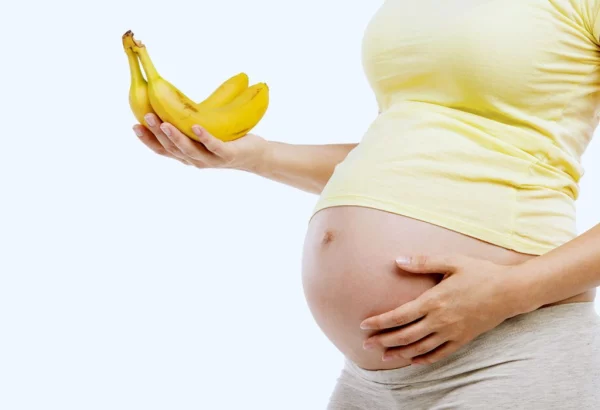
Kiwi is another fruit that is great for expectant mothers. Not only is kiwi rich in Vitamin C, but it also contains a lot of fiber, which supports the digestive system and prevents constipation, a common issue during pregnancy. Kiwi also contains folate, a vital nutrient in preventing birth defects in the fetus.
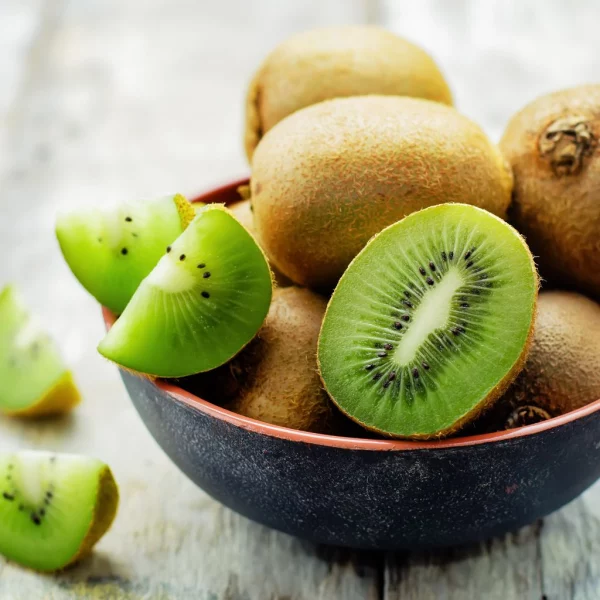
Raspberries and mulberries are berries that are rich in antioxidants and Vitamin C, helping protect the mother’s cells from damage and supporting the brain development of the fetus. Studies show that consuming berries like raspberries can help enhance the cognitive development of the child, supporting the development of the fetal brain.
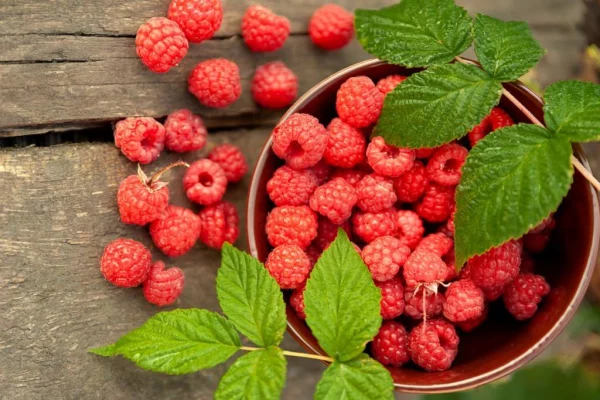
Another fruit that expectant mothers can add to their diet is grapes. Grapes are rich in Vitamin B6, helping reduce fatigue and nausea during pregnancy. Grapes are also a source of antioxidants, helping protect the body from cell damage and boosting immunity.
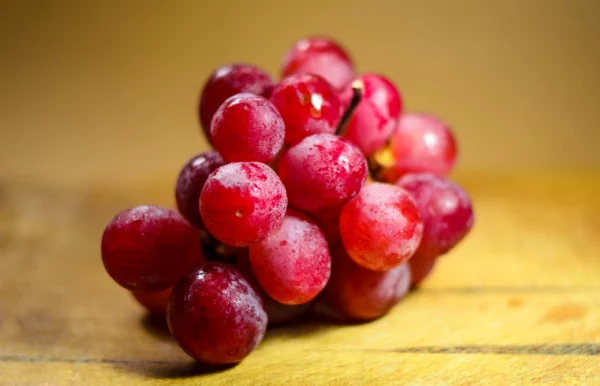
Although fruits are very beneficial for pregnant women, fruit consumption still needs to be controlled. Nutritionists recommend that pregnant women should eat 3-4 servings of fruit per day to avoid excess natural sugar, especially with sweet fruits like mangoes, grapes, and pineapples. Pregnant women should also choose fresh fruits over dried fruits, as dried fruits have a high calorie content and can lead to uncontrolled weight gain.
Additionally, if a pregnant woman is at risk of gestational diabetes, she should pay attention to controlling sugar intake from fruits, prioritizing lower-sugar fruits like apples, pears, or watermelon. These fruits not only provide vitamins and minerals but also do not affect blood sugar levels.
For the best effect in supplementing iron and Vitamin C, pregnant women should combine eating fruits rich in Vitamin C with iron-rich foods like red meat, beans, and dark leafy vegetables. A meal with beef (containing iron) and strawberries (containing Vitamin C) will help the mother’s body absorb iron more easily.
“A balanced and varied diet, including fruits rich in vitamins and minerals, will help the mother stay healthy and the fetus develop comprehensively.” – World Health Organization (WHO), 2020.
Adding fruits to the diet during pregnancy not only helps reduce fatigue and anemia but also provides a solid nutritional foundation for the development of the fetus. Fruits like oranges, tangerines, bananas, kiwi, and berries are all excellent for both mother and baby’s health. Pay attention to choosing nutrient-rich fruits and combining them properly to ensure a healthy and nutritious pregnancy.


HPX24h > Healthy Eating > The Reasons You Should Eat These Fruits During Pregnancy to Reduce Fatigue and Anemia
Tagged Articles
Can Pregnant Women Experience Temporary Memory Loss? The Secrets Behind Brain Changes During Pregnancy
Exercise Tips for Pregnancy: Safe, Effective, and Beneficial for Mom and Baby
Safe Exercises for Early Pregnancy: Tips to Keep Moms Healthy and Strong
Top Reads from This Category
Healthy Eating
What Is Nutrition? Why Is It Important For Health?
Healthy Eating
Robert F. Kennedy Jr.: “We Are Being Poisoned Without Knowing It”
Healthy Eating
Why Do We Crave Sweets? A Scientific Perspective on Food Cravings
Healthy Eating
Foods That Support Depression Reduction: The Latest Scientific Nutritional Choices
Healthy Eating
Health is ‘Declining’ Due to Processed Foods: How to Turn the Tide
Healthy Eating
Understanding the Important Role of Carbohydrates in Health
Healthy Eating
Does Drinking Water Help with Weight Loss? The Science Behind It and How to Apply It Properly
Discover New Topics
Science
NSF Cuts 168 Jobs – Is the U.S. Scientific Community in Danger?
Science
Modular Prosthetic Limb Technology: Breakthrough Discovery Enhances Motion for Disabled Individuals
Animals
The Stunning Image of a Cheetah in Action During Its Hunt
Science
A New Era in HIV Prevention: Vaccine Set to Launch
Parenting Tips
How to Prevent a 2-Year-Old from Throwing Things?
Space
3D Lunar Map: A New Gateway to Understanding the Universe
Parenting Tips
How to Talk to Your Child About Smoking Issues
Space
The Smallest Star System with Three Exoplanets Found by NASA’s Kepler
Animals
The Secret Behind Turtle Eggs Hatching at the Same Time: A Fascinating Reason
Science
Mind-Controlled Prosthetics: A Groundbreaking Advancement in Medicine
Animals
Decoding Whale Songs: When the Community Joins to Uncover the Ocean’s Mysteries
Healthy Eating
MIND Diet – The Secret to Protecting the Brain and Preventing Cognitive Decline
Science
Turning Snake Venom into Life-Saving Medicine: A Promising New Yeast Cell Technology